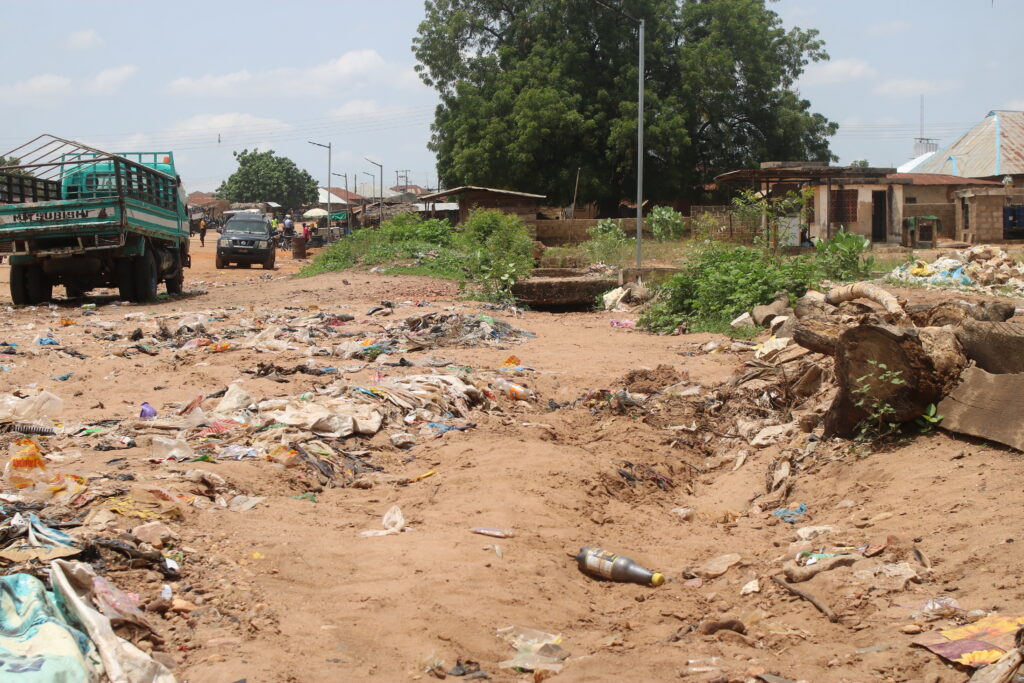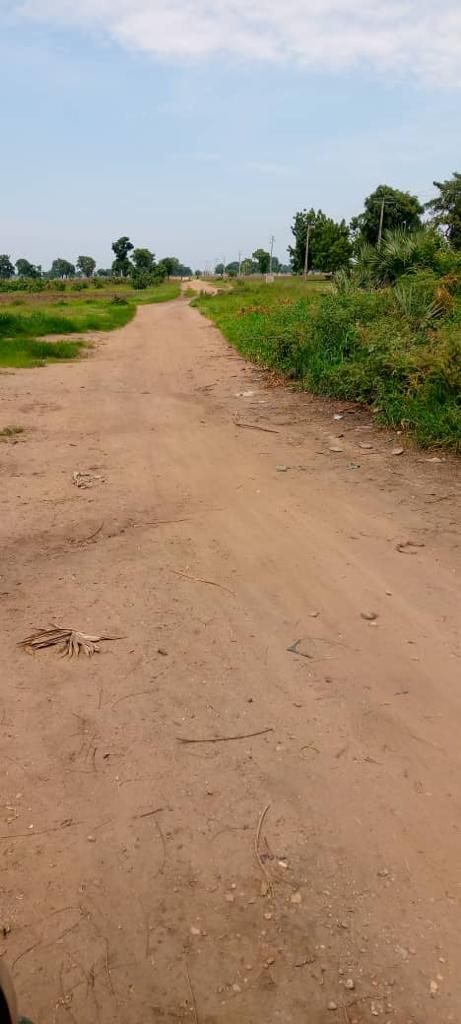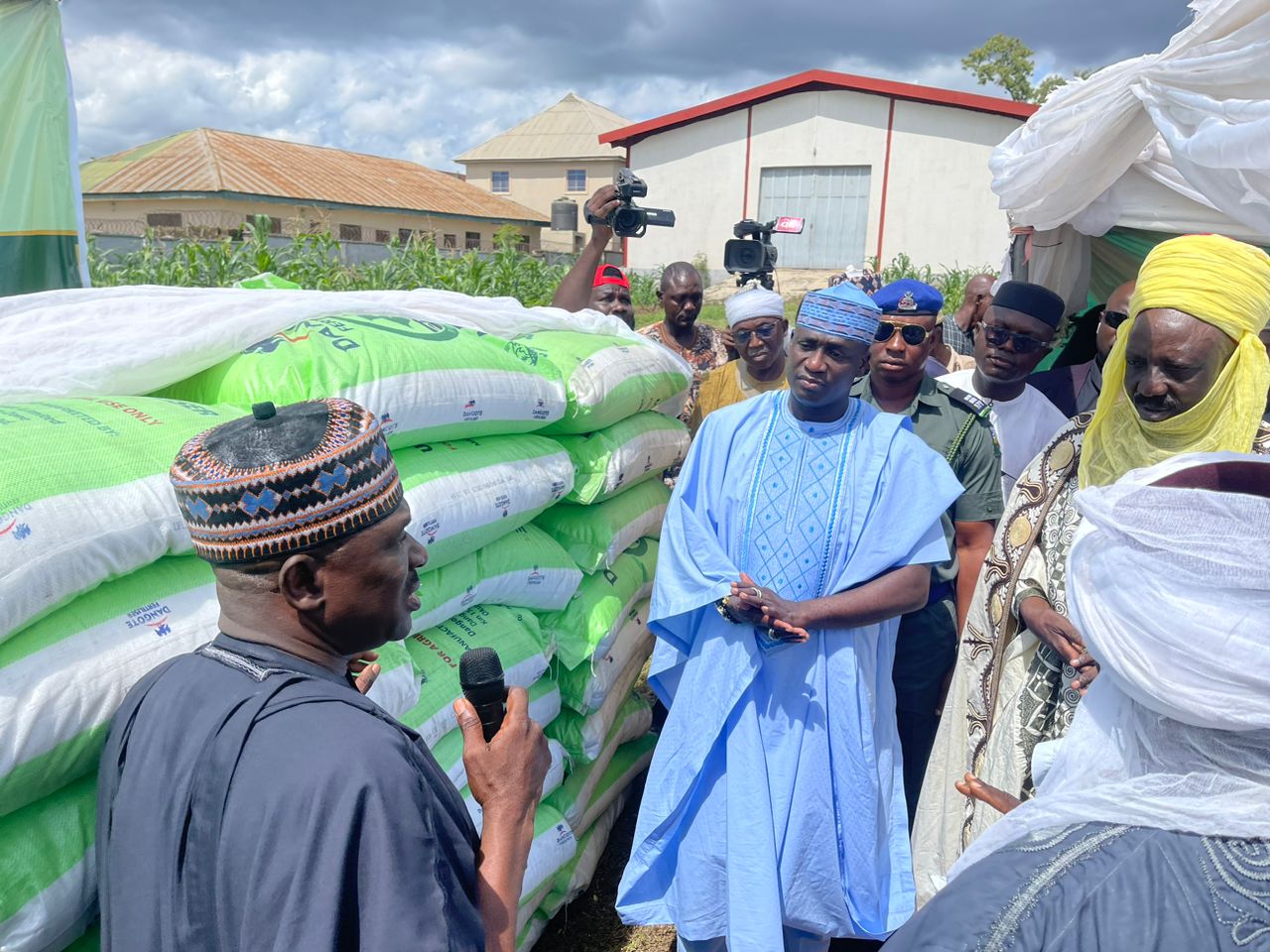Kwara state, located in the north-central region of Nigeria, is known for its vast agricultural resources and fertile lands. However, the lack of good transport infrastructure in the agrarian communities is posing a major challenge to the transportation of agricultural produce from the farms to the markets, thereby affecting food production and economic growth.
Several farmers in the state have lamented the difficulty they face in transporting their goods due to the poor road conditions. The roads are often filled with potholes and are difficult to navigate, particularly during the rainy season.
In addition, the lack of proper storage facilities means that perishable goods such as fruits and vegetables often spoil before they can be delivered to the market.
Likpata, is one of the numerous communities on the fringes of river Niger in Edu local government area of Kwara state, during the raining season residents of the agrarian communities are cut off from the rest of the state.
This is because during the raining the community is always flooded partly due to changes in rainfall patterns and effect of climate change and excess water from the river Nigeria mostly between August and October.
A resident of the community Haruna Mohammed, said that the situation said it has not always been like this.
He narrated that the community begin witnessing massive flooding a decade ago which became worse in 2022.
“During rainy season, life has been hard for people in the community, as they find it extremely difficult to get their farm produce to the market for sale.
Despite the volume of crops like tomatoes, pepper and other perishable items, most don’t make it to the market due to the lack of good motorable roads for vehicles to get the produce to the markets for sale.
A youth leader in the community Mohammed Jiya, while lamenting about the effect of yearly flooding on the community said most of the farmers have left the village to engage in menial jobs in towns.
Narrating their ordeal “Youths in this community have lost their means of livelihood which is farming and fishing because of yearly floods.

“Ten years ago, it’s not like this, it’s just once in a while we witness flooding, but now it’s every year, even wind storm always accompanies the rains.
“Our roads have been destroyed due to flooding and the only health centre in the community stopped working since 2013, which has resulted into many avoidable deaths as we can’t access the nearest general hospital in Lafiagi which is about 20 kilometers away,” he said.
Asked if he is aware about the forecast of heavy rains this year by NIMET he said has never heard of NIMET before adding that the community always pray to God to have reduced rains every year.
The story of Chewuru, another fishing and agrarian community Edu local government area of the state is more pathetic as the community according to the resident have not benefited from any form assistance from the government since they have been experiencing perennial flooding for more than 30 years.
The only means to access the village during rainy season is through motorcycle popularly called okada in local parlance as the road is impassable, due to years of flooding.
While taking our reporter round the community of about 50 houses and 500 inhabitants Alhaji Umaru Shaaba who spoke through an interpreter, said the people of the town always relocate to Edogi, a nearby town during the yearly flooding as the whole town is always submerged.
He revealed that fishes produced in the community through an earthen pond and farm produce is always lost during the raining season due to their inability to get it to the market for sales.
“We are suffering in this community; we can’t farm, because if we do flood water will destroy it, even flood always washes our fishes in the pond away because the roads are bad.
“We always hear on radio what government is doing for other communities suffering from flooding to alleviate their suffering, we only hear we don’t see.
“The only time we see government in the village is during campaign with many promises and after that nothing is heard again from them, we have resigned to fate,” he explained with a teary eye.
Shaaba however said the people of the community are willing to relocate to another area provided the government can provide land and other amenities to make their stay comfortable.
Climate change occurring either as slow or rapid onset events has been identified as a threat to global economic development affecting various sectors of the economy like the Agric and food production.
Current climate changes pose challenges to the sector as climate change risk on infrastructure, a vital pillar supporting the agricultural sector, is an added threat to the already risk on agricultural production.
Transport infrastructure particularly road systems are unfortunately in deficit in agrarian communities, host to agricultural production and often located in rural areas, and the few available are in poor conditions. These conditions make them vulnerable to existing climate risk, future uncertainties and much more.
Climate change, a global environmental challenge driving natural hazards is a threat to sustainable agricultural development. Changes in average weather conditions, alongside extreme weather events are altering the climate system resulting in not only unpredictable rainfall and temperature patterns but also increasing occurrences of climate related events such as extreme flooding’s and droughts in some cases
Transport infrastructure which plays critical roles in agricultural production and trade by facilitating food availability and accessibility is progressively affected by climate change and its impacts. Future climate change may pose higher infrastructure risk.
Heavy rainfall and floods have a higher correlation with road damages and bridge collapse. Secondly, infrastructure disruption/ failure has significant impacts on accessibility, food waste and market demand and supply.
In tackling these issues, the government at all level should has a matter of priority initiate policies to manage climate change impacts on transport infrastructure especially in the rural areas for sustainable agricultural production and trade as well as food security.
Government should also consider the need for the inclusion of current and future climate change into infrastructure planning, design construction and maintenance.
With the improved transport infrastructure, farmers in the state will be able to transport their goods to the market more efficiently, thereby boosting food production and promoting economic growth in the state.
This story is produced with support from Brain Builders Development Youth Initiative (a climate focused non-profit in Nigeria) and Sobi 101.9 FM Ilorin, Kwara State, North central Nigeria.





